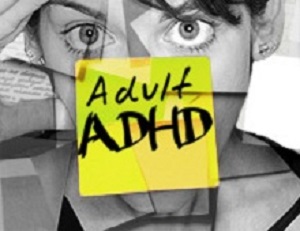 More than 80% of people who have been diagnosed with attention deficit hyperactivity disorder in adulthood are unlikely to have the condition, Medical News Today reports a study has found.
More than 80% of people who have been diagnosed with attention deficit hyperactivity disorder in adulthood are unlikely to have the condition, Medical News Today reports a study has found.
Attention deficit hyperactivity disorder (ADHD) is a brain condition characterised by impulsive behavior, hyperactivity, and problems with concentration. Symptoms of the condition include fidgeting, being easily distracted, forgetfulness, and having poor organizational skills.
Onset of ADHD is most common in childhood; around 11% of children aged 4–17 years in the US have ever been diagnosed with the condition. Around two thirds of children with ADHD will continue to have the disorder into adulthood, and it is not uncommon for an ADHD diagnosis to be made in adulthood. According to the Attention Deficit Disorder Association, around 5% of adults in the US. have ADHD.
The new study, however, suggests that the vast majority of people who are diagnosed with ADHD in later life may not actually have the condition, raising questions about whether or not onset of the condition occurs in adulthood at all.
The research was conducted by Margaret H Sibley, of the Herbert Wertheim College of Medicine at Florida International University in Miami, and her colleagues. The researchers came to their findings by conducting a longitudinal analysis of 239 individuals, all of whom were free of childhood ADHD.
Each of the subjects was assessed every 2 years between the ages of 10 and 25. For the biennial assessments, the team looked at the emergence of ADHD symptoms as well as evidence of substance abuse, cognitive impairments, and mental health disorders.
All information was gathered from self-reports and reports from parents and teachers. The analysis revealed that for over 80% of participants who began to display ADHD symptoms in adulthood, their symptoms could be explained by other factors.
"We found a number of people who looked like they had adult-onset ADHD," explains Sibley, "but when we looked closely, adult-onset symptoms were traced back to childhood or were better explained by other problems, like the cognitive effects of heavy marijuana use, psychological trauma, or depressive symptoms that affect concentration." What is more, the researchers found that in the absence of a history of psychiatric disorders, "there was no evidence for adult-onset ADHD."
Based on their findings, Sibley and her colleagues suggest that clinicians should be cautious when assessing adults for ADHD, as there are many other factors that could explain the onset of ADHD-like symptoms. The researchers conclude:
"False positive late-onset ADHD cases are common without careful assessment. Clinicians should carefully assess impairment, psychiatric history, and substance use before treating potential late-onset cases."
Abstract
Objective: Adolescents and young adults without childhood attention deficit hyperactivity disorder (ADHD) often present to clinics seeking stimulant medication for late-onset ADHD symptoms. Recent birth-cohort studies support the notion of late-onset ADHD, but these investigations are limited by relying on screening instruments to assess ADHD, not considering alternative causes of symptoms, or failing to obtain complete psychiatric histories. The authors address these limitations by examining psychiatric assessments administered longitudinally to the local normative comparison group of the Multimodal Treatment Study of ADHD.
Method: Individuals without childhood ADHD (N=239) were administered eight assessments from comparison baseline (mean age=9.89 years) to young adulthood (mean age=24.40 years). Diagnostic procedures utilized parent, teacher, and self-reports of ADHD symptoms, impairment, substance use, and other mental disorders, with consideration of symptom context and timing.
Results: Approximately 95% of individuals who initially screened positive on symptom checklists were excluded from late-onset ADHD diagnosis. Among individuals with impairing late-onset ADHD symptoms, the most common reason for diagnostic exclusion was symptoms or impairment occurring exclusively in the context of heavy substance use. Most late-onset cases displayed onset in adolescence and an adolescence-limited presentation. There was no evidence for adult-onset ADHD independent of a complex psychiatric history.
Conclusions: Individuals seeking treatment for late-onset ADHD may be valid cases; however, more commonly, symptoms represent nonimpairing cognitive fluctuations, a comorbid disorder, or the cognitive effects of substance use. False positive late-onset ADHD cases are common without careful assessment. Clinicians should carefully assess impairment, psychiatric history, and substance use before treating potential late-onset cases.
Authors
Margaret H Sibley, Luis A Rohde, James M Swanson, Lily T Hechtman, Brooke SG Molina, John T Mitchell, L Eugene Arnold, Arthur Caye, Traci M Kennedy, Arunima Roy, Annamarie Stehli
[link url="https://www.medicalnewstoday.com/articles/319841.php"]Medical News Today report[/link]
[link url="http://ajp.psychiatryonline.org/doi/full/10.1176/appi.ajp.2017.17030298"]The American Journal of Psychiatry abstract[/link]
